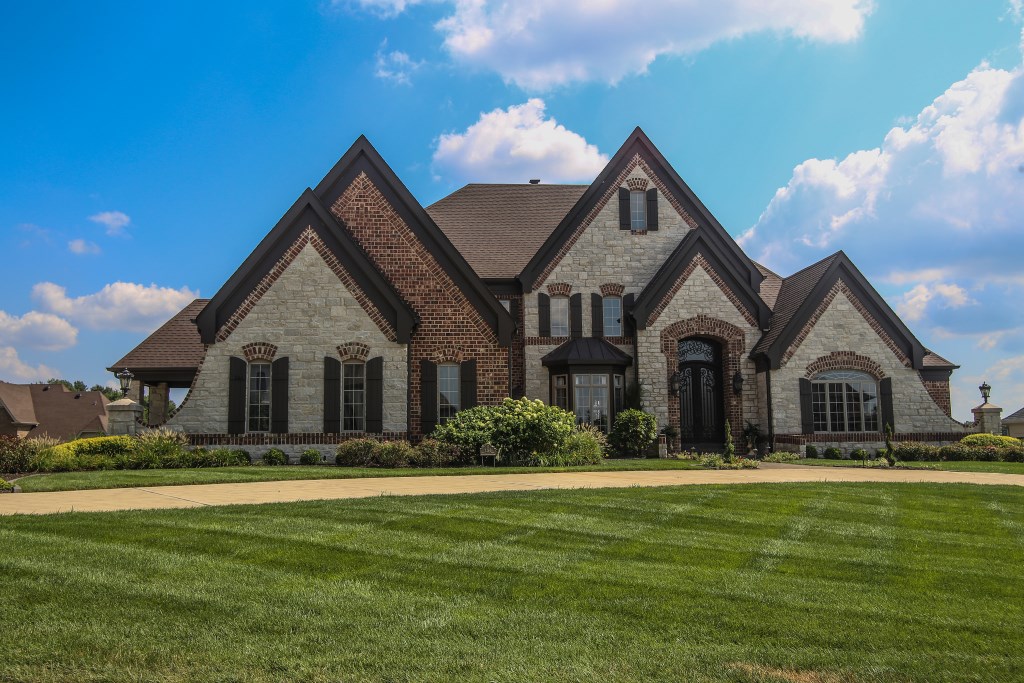GOP Legislators Want Pandemic Aid for Tax Rebate
They propose $1 billion property tax rebate with aid based on value of homes.

Photo by Paul Sableman. (CC BY 2.0)
Having lost their bid for legislative control of federal COVID funds, Assembly Republicans on Tuesday sketched out three items on which they want Wisconsin to spend some of its $3.2 billion in new federal COVID relief — starting with $1 billion to property owners based on the value of their property taxes.
Reps. Tyler August (R-Lake Geneva), Mark Born (R-Beaver Dam) and Barbara Dittrich (R-Oconomowoc) described their priorities for the federal funds in a brief news conference Tuesday afternoon — following up on Monday’s announcement by Gov. Tony Evers on how his office plans to distribute the money.
Evers also outlined some of his own initial plans for the money: $600 million for restaurants and other small businesses working to rebuild, $50 million for tourism, investing $200 million in broadband internet service and other infrastructure, and $500 million to help cover the costs of the state’s response to the pandemic.
The Republican legislators Tuesday mocked the federal law sending those funds to Wisconsin and every other state. August called it “an outrageous amount of money that they’ve decided to mortgage the future on” — making it “even more important that we make sure that that money is spent wisely here in the state of Wisconsin.”
The GOP lawmakers said they could support proposed spending on small business and tourism, but focused on what they considered omissions on the governor’s part.
Born, the Assembly co-chair of the Joint Finance Committee, said property owners deserved the $1 billion tax rebate Republicans proposed — equivalent to 10% of property tax bills — because “the people most impacted by the pandemic, the hardworking Wisconsin taxpayers, should see additional state aid coming out of the pandemic funds.” All property owners — not just homeowners — would be included, he said.
Jon Peacock of the Wisconsin Budget Project told the Wisconsin Examiner the property tax proposal would exacerbate wealth disparities in the state.
“The pandemic caused a wider gap between the rich and the poor,” Peacock said. “Rather than helping narrow that divide, the Republican plan would compound the problem by allocating the federal dollars on the basis of property ownership.”
The GOP’s third priority, said Dittrich, would be for nursing homes and long-term care facilities, where nearly half of the people who died from COVID-19 have lived. The pandemic left many long-term care residents isolated, she said, while employees “did everything they could to ensure the health and safety of these residents,” she said. “It’s important that we recognize this industry and the difficult year it’s been through.”
Assembly Republicans didn’t specify either the amount they were proposing to spend on long-term care nor for what specific purpose.
Asked at a Tuesday afternoon media briefing about that GOP proposal, Evers noted that he has already put into his state budget proposal “significant increases for nursing homes,” including money for increasing pay for caregivers. In addition, he said, some state ARPA funds will be used to provide nursing homes with personal protective equipment, help them test for the coronavirus and support other measures to prevent its spread in nursing homes.
It’s not clear whether the property tax rebate as the Republicans proposed it would be permitted under the act. ARPA includes a provision barring states from cutting taxes and using the funds to offset the resulting revenue reduction.
Born said that since the GOP proposal is simply to use property owners’ tax bills as a formula for distributing the money, “this doesn’t weigh in on taxes in any way.”
“I would be very surprised if the Treasury guidance that comes out would make something like that permissible under the plain text of the statute,” Rocco says.
He’s also skeptical about the other items unveiled Tuesday.
“The rest of the proposal is so bare bones that it raises the question about whether or not this represents a substantive alternative” to Evers’ plans for the stimulus funds, Rocco says, “or is it in fact just window dressing for Republican attempts to interpose the Legislature as the core source of authority for how the funding should be spent. Given the two years of history between Evers and the state Legislature, I would wager that it’s really about politics and not policy differences.”
Reprinted with permission of Wisconsin Examiner.






















All property owners – so that includes commercial property.
So glad the WI GOP is looking out for their rich donors!
I’m sure they would also try to weasel in some clause to exclude City of Milwaukee entirely. I can’t figure out why the WI GOP has some sort of vendetta against the city.
Neo Confederate Republicans prove their in humanity and cruelty to normal people.
This is nonsense! I can’t see any rationale for basing need for pandemic aid on the value of real estate.
How about allocating a relief payment for those who showed a decrease in earnings for 2020 compared to 2019 (based on Wisconsin Income taxes). A bigger reduction in earnings gets a bigger piece of the pie. Now that would make more sense to me.
The State Republicans live in an upside down world!!!! Campaign dollars that pain all of us!!! We have Good Friday to celebrate this news of the Empire seeking to crush and enslave us. The story is the same. The answer is overturning the money changer’s tables in the temples of our hearts..so we can elect some better Representatives OF THE PEOPLE.